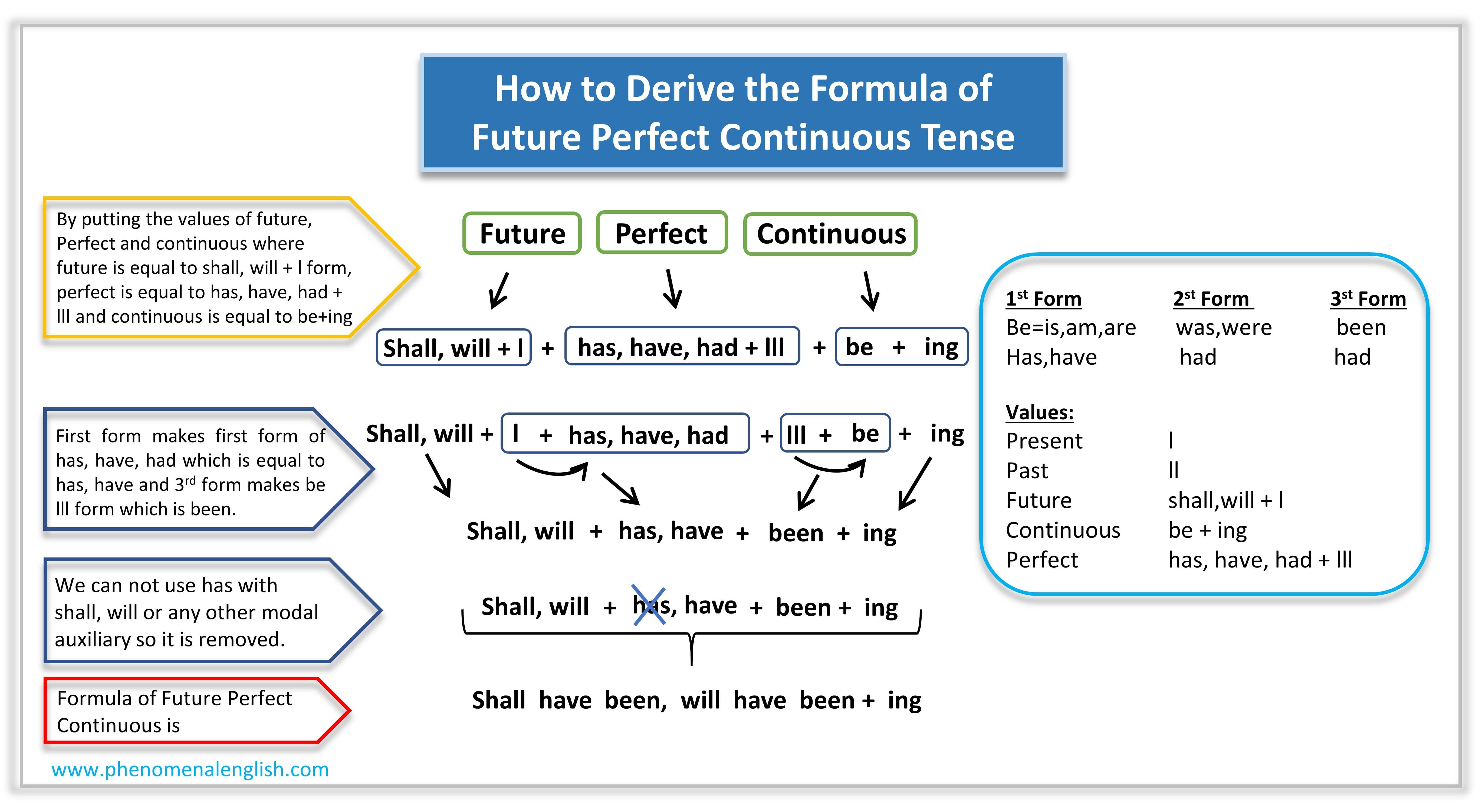Phenomenal English
Solution Destination to your Problems
Future Perfect Continuous (Progressive)
Definition of Future Perfect Continuous
Future Perfect Continuous tense is used to express such actions that are supposed to start from given time or for a period of time in the future and to continue in future.
Time marker or time reference distinguishes this tense from Future Continuous.
Usages of Future Perfect Continuous
- To express an action that is supposed to start in future from a point of time or for a period of time i.e
for two hours
,for ten minutes
,since morning
in future and to continue in the future.- I shall have been working for my thesis for one month.
- The birds will have been flying from Siberia for one week.
- Masons will have been building my house for two years.
- To show combination of cause and effect. Future Perfect Continuous can be both a cause or an effect in this combination.
- My maid will have been suffering from fever for the whole afternoon because she washes clothes in severe cold. (Here Future Perfect Continuous tense is showing 'Effect')
- Samantha fails in mid term exam because she will not have been attending the coaching classes. (Here Future Perfect Continuous tense is showing 'Cause')
- Simon exhausts because he will have been dancing for the whole evening.
Formation of Future Perfect Continuous


Affirmative Sentences
In positive or affirmative sentences of Future Perfect Continuous Tense we use shall have been, will have been and ing form of verb. Shall have been with first person (I, we) and will have been with 2nd and 3rd persons (he, she, it, they, singular names and plural names etc).
Examples
- She will have been working in this factory for two years.
- I shall have been playing badminton since the start of the summar.
- He will have been watching hockey match for an hour.
- Jacob will have been enjoying music for two months.
- My brother will have been practicing law since 1990.
Use of SINCE and FOR
We use Since when the starting point or time of the given action is mentioned i.e 5o'clock, 1990, 10th July etc . For is used when time period i.e two years, 5 months, several days etc of an action is mentioned in the sentence.
Examples
He will have been playing cricket since 1 o'clock.He will have been playing cricket for one hour.
Interrogative Sentences
In interrogative sentences of Future Perfect Continuous Tense we drag shall, will before subject and use ing form of verb. Shall have been with first person (I, we) and will have been with 2nd and 3rd persons (he, she, it, they, singular names and plural names etc).
Examples
- Will he have been playing chess since Monday?
- Shall I have been calling you for two days?
- Will Stephen have been preparing his interview for over a week?
- Will he have been riding a heavy bike since his youth?
- Will these plants have been growing all the summer in my backyard.
Negative Sentences
In negative sentences of Future Perfect Continuous Tense we use not after shall, will and ing form of verb. Shall have been with first person (I, we) and will have been with 2nd and 3rd persons (he, she, it, they, singular names and plural names etc).
Examples
- She will not have been doing job since her father died.
- We shall not have been waiting for you for an hour.
- I shall not have been searching my lost books for three month.
- Jessica will not have been taking wrong path to her office for a month?
- We shall not have been living in Canterbury since 2001.